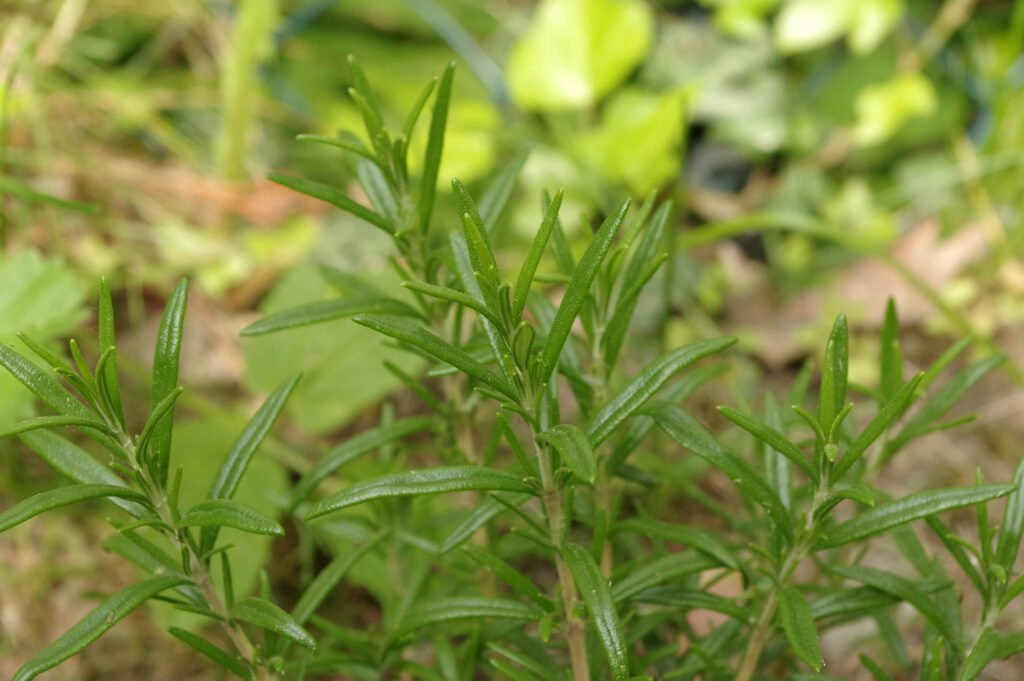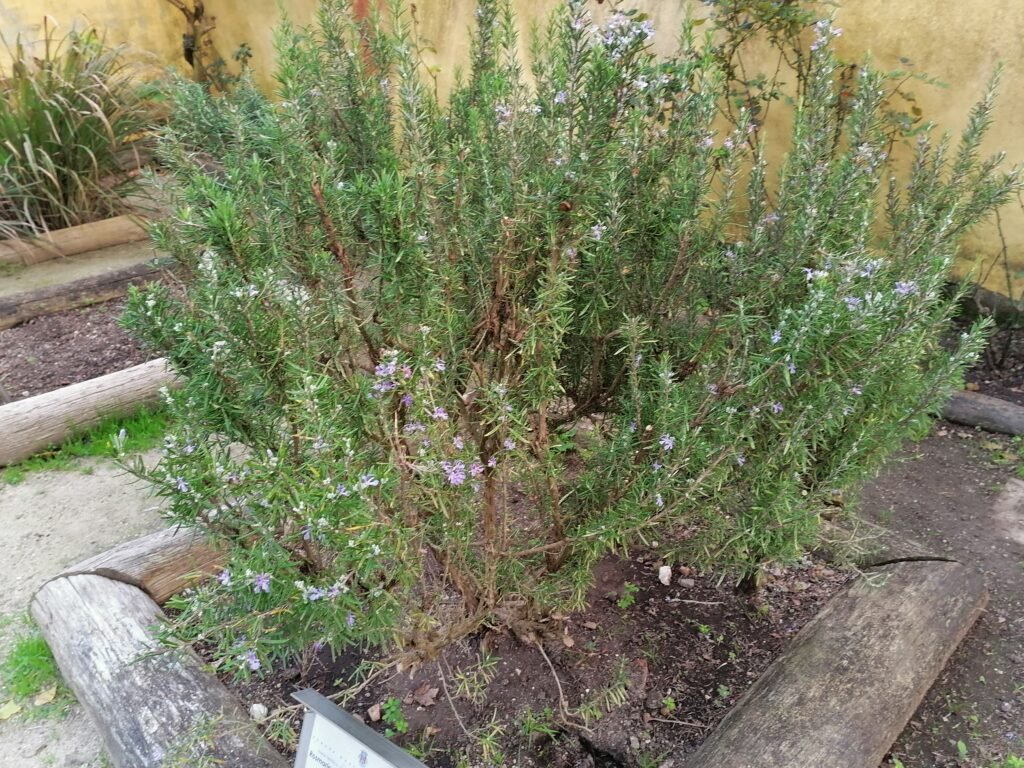Rosmarinus officinalis
From the mint family.
A sun herb and attribute of Aphrodite.
Rosemary is a wonderful aromatic evergreen medicinal plant that can grow into real bushes, especially in the Mediterranean region. Thanks to its essential oils, rosemary exudes a wonderful scent. If you rub a few rosemary leaves between your fingers in passing, you can smell the essential rosemary oil on your hands for longer.
Traditionally, the branches of rosemary were also wound into wreaths as evergreens – evergreen wreaths symbolize eternity, as the name suggests, but also rebirth. Our Advent wreaths also go back to this, originally as pagan Yule wreaths, which symbolized the rebirth of the sun or light at the time of the winter solstice. In addition, rosemary was also used at weddings.

Rosemary essential oil
Rosemary essential oil (or rather, essential oils namely cineole, borneol, camphor, and others) is believed to stimulate circulation and has a warming effect, reinforcing its connection to the sun. In aromatherapy, especially when used in fragrance lamps, rosemary is said to have a concentration-enhancing and waking effect. It promotes digestion and menstruation.
The circulatory stimulating effect is often used in foot baths, but you can also add a few drops of essential rosemary oil to the shower gel to use the stimulating effect in the morning. Rosemary essential oil is also great as a bath additive if you like the scent – add five to ten drops of rosemary essential oil to a tablespoon of carrier oil, such as jojoba or olive oil, before adding to bath water. Non-vegans can also use a tablespoon of honey.
Caution in pregnancy.
Use of rosemary essential oil
You can mix three to five drops of rosemary essential oil with a carrier oil (such as almond, jojoba, or olive oil) and rub your feet when you have a cold (especially if you’re shivering). This should help to fight a cold in the bud. Then put on thick socks. This is also recommended for circulatory weakness.
You can use two to five drops of rosemary in the aroma lamp if you have mental work ahead of you or if you want to feel more awake in general.

Dried rosemary as a spice and tea
Dried rosemary leaves (or twigs) are traditionally used more as a spice than as a tea, but dried rosemary is a wonderful addition to tea blends – here, too, it has a stimulating and even aphrodisiac effect. In the kitchen, rosemary is used in particular in Mediterranean dishes, for example in ratatouille (Provencal vegetable stew). It is one of the classic kitchen herbs par excellence. Rosemary has also been used as an addition to ice cream and sweets, precisely because of its special aroma.

Rosemary wine recipe
In the Mediterranean region, rosemary wine is a trusted ally for cool evenings and hot nights. Even as a wine, rosemary stimulates circulation and libido, so it is often used as an aphrodisiac.
Pour a bottle of wine of your choice over two to three handfuls of rosemary leaves (or whole sprigs) in a clean container. Be careful not to let any plants peek out over the liquid, the wine should completely cover the rosemary. Leave the jar tightly closed in the sun for two weeks (on the windowsill, for example). You can then filter the liquid through a fine sieve or kitchen towel and keep it cool.
You can also add a special aroma to oils and vinegars in this way.
Disclaimer
This article is purely educational, its purpose is solely information and reproduction of historical knowledge and about traditional use of herbs based on tales of people’s experience. If you have health problems or an existing illness, please consult your doctor. Make sure you are not allergic to any herbs you plan to use, and use herbs and essential oils for health reasons only under the guidance of a herbal practitioner and your doctor.
+++ Do not use essential oils during pregnancy. +++ Do not use for children.+++

